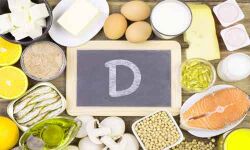- Home
- Medical news & Guidelines
- Anesthesiology
- Cardiology and CTVS
- Critical Care
- Dentistry
- Dermatology
- Diabetes and Endocrinology
- ENT
- Gastroenterology
- Medicine
- Nephrology
- Neurology
- Obstretics-Gynaecology
- Oncology
- Ophthalmology
- Orthopaedics
- Pediatrics-Neonatology
- Psychiatry
- Pulmonology
- Radiology
- Surgery
- Urology
- Laboratory Medicine
- Diet
- Nursing
- Paramedical
- Physiotherapy
- Health news
- Fact Check
- Bone Health Fact Check
- Brain Health Fact Check
- Cancer Related Fact Check
- Child Care Fact Check
- Dental and oral health fact check
- Diabetes and metabolic health fact check
- Diet and Nutrition Fact Check
- Eye and ENT Care Fact Check
- Fitness fact check
- Gut health fact check
- Heart health fact check
- Kidney health fact check
- Medical education fact check
- Men's health fact check
- Respiratory fact check
- Skin and hair care fact check
- Vaccine and Immunization fact check
- Women's health fact check
- AYUSH
- State News
- Andaman and Nicobar Islands
- Andhra Pradesh
- Arunachal Pradesh
- Assam
- Bihar
- Chandigarh
- Chattisgarh
- Dadra and Nagar Haveli
- Daman and Diu
- Delhi
- Goa
- Gujarat
- Haryana
- Himachal Pradesh
- Jammu & Kashmir
- Jharkhand
- Karnataka
- Kerala
- Ladakh
- Lakshadweep
- Madhya Pradesh
- Maharashtra
- Manipur
- Meghalaya
- Mizoram
- Nagaland
- Odisha
- Puducherry
- Punjab
- Rajasthan
- Sikkim
- Tamil Nadu
- Telangana
- Tripura
- Uttar Pradesh
- Uttrakhand
- West Bengal
- Medical Education
- Industry
Vitamin D intake may decreases risk of stroke finds study

China: Vitamin D intake decreases the risk of stroke, according to a recent study published in the journal Clinical Nutrition. The study found that 25(OH)D levels and vitamin D intake were both inversely related to stroke risk, with a non-linear dose-response relationship.
Stroke is a disease that affects the arteries leading to and within the brain. A stroke occurs when a blood vessel that carries oxygen and nutrients to the brain is either blocked by a clot or bursts (or ruptures).
A large number of studies have shown vitamin D to be related to stroke risk. The dose-response association between vitamin D and stroke risk is unclear. So, Han Shi, Clinical Department One, China Medical University, Shenyang, China, and colleagues conducted a dose-response meta-analysis to evaluate the relationships between 25-hydroxyvitamin D [25(OH)D] level, vitamin D intake, and the risk of stroke by summarizing cohort studies.
The researchers searched PubMed, Embase, Cochrane, and the Web of Science database for related studies. They included cohort studies that examined the influence of 25(OH)D level and vitamin D intake on stroke risk. Dose-response relationships were determined using a random-effect model. Twenty cohort studies involving 217,235 participants were included.
Read Also: Vitamin D protein impacts pancreatic function and development of type 1 diabetes
Key findings of the study include:
- The pooled relative risk for the high-versus-low categories was 0.74 for 25(OH)D level, and 0.75 for vitamin D intake.
- In addition, there were non-linear relationships between 25(OH)D level, vitamin D intake, and stroke risk.
- The incidence of stroke was reduced to its lowest point, with a reduction of about 20%, when 25(OH)D level was about 50 nmol/L or vitamin D intake was about 12 μg/day.
"25(OH)D level and vitamin D intake were both inversely related to stroke risk, with a non-linear dose–response relationship," concluded the authors.
Read Also: Antioxidants in acute ischemic stroke may delay Alzheimer's dementia
The study, "25-Hydroxyvitamin D level, vitamin D intake, and risk of stroke: A dose–response meta-analysis," is published in the journal Clinical Nutrition.
Dr Kamal Kant Kohli-MBBS, DTCD- a chest specialist with more than 30 years of practice and a flair for writing clinical articles, Dr Kamal Kant Kohli joined Medical Dialogues as a Chief Editor of Medical News. Besides writing articles, as an editor, he proofreads and verifies all the medical content published on Medical Dialogues including those coming from journals, studies,medical conferences,guidelines etc. Email: drkohli@medicaldialogues.in. Contact no. 011-43720751


